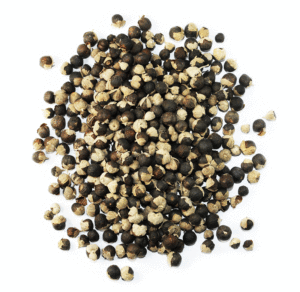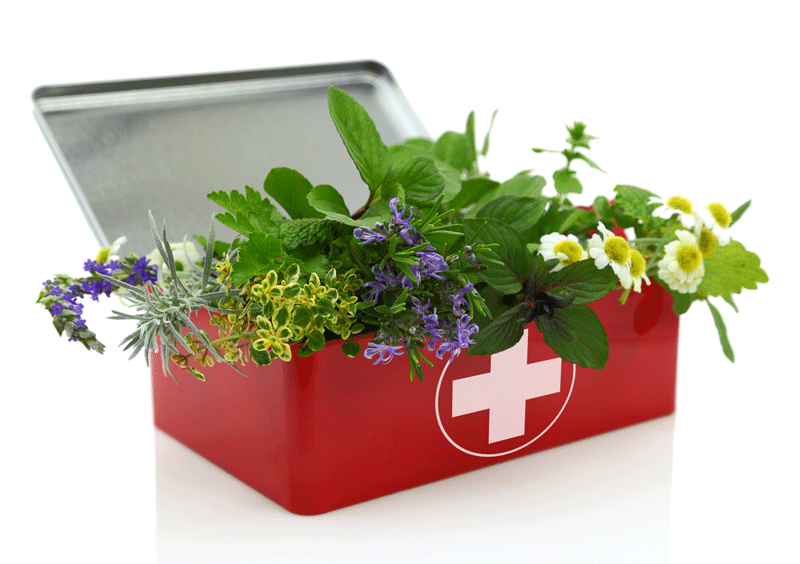Mares, can’t understand them… just too unpredictable… give me a gelding any day!
These are some of the typical frustrated comments from people dealing with their mares’ hormone imbalances. These horses may be sweet as can be one day and a grumpy, ear-pinning Wicked Witch of the West the next. Chinese herbs may offer just the help needed for those mare-ish mood swings.
Chinese herbal therapy has a long history
The written history of Traditional Chinese Medicine (TCM) and Chinese herbs dates back at least 2,000 years. One of the earliest herbal reference books, The Divine Husbandman’s Classic of the Materia Medica, dates from the Han dynasty and lists 364 substances, many of which are still being used in modern formulations. We’re consequently benefiting from several thousand years of field trials, knowledge and experience. TCM continues to grow and evolve as we explore new areas of science. Science, in turn, deepens our understanding of how herbs work. Many volumes of pharmacological data now exist to support the use of herbs in modern medical settings.
Chinese herbs can be used effectively to treat diseases, symptoms or conditions that are usually treated by drugs and pharmaceuticals. One of the major benefits of Chinese herbal therapy is that when used correctly, it has very few of the negative side effects associated with drugs.*
Man Jing Zi – a hormone balancer
The Chinese herb Man Jing Zi (Fructus Viticus), also known as Vitex, Chastetree Berry, or Chasteberry, has been used for centuries in both Asia and Europe as a woman’s tonic and hormonal balancer.
Modern research shows Man Jing Zi to be effective for a number of conditions, including infertility and problematic or absent heat cycles (anestrus). There is evidence that it also reduces the size of uterine fibroids, pituitary cysts and tumors.
One of the ways Man Jing Zi works is by stimulating the pituitary gland to raise levels of the hormone progesterone. It’s similar to using synthetic hormone therapies. Progesterone, considered by many to be the calming hormone, enables the body to prepare for and maintain a pregnancy. Many of our mares’ behavioral problems are associated with low progesterone levels in relation to high levels of estrogen. The hormone estrogen rises sharply just prior to ovulation and is associated with a sense of vitality and well-being. It is this sudden estrogen spike every 21 days that signals fertility and the ability to conceive. It also brings on aggressive, unsocial, mare-ish behaviors, or what so many mare owners call equine PMS.
How much to use: Four to eight grams of powdered herb or one to two tablespoons per day is adequate for the average 1,000 pound horse. Whole berries can be ground as needed in a coffee grinder and fed in sweet feed, grain or in well soaked beet pulp. Most horses readily accept this new addition to their diet.
Which horses can use it: Most healthy mares are good candidates. You should consult your veterinarian to rule out any serious causes of the mare’s behavior, like an infection or ovarian tumor.
When to use: Man Jing Zi can be safely used all year long, but many mare owners report positive results with a seasonal approach, feeding the herb from early March through late September. Man Jing Zi should not be used with synthetic hormones like Regumate, Ovplant and Depo-Provera, or during short cycling procedures.
Although we may not be able to completely overcome the effects of hormones on our mares’ moods and behaviors, Man Jing Zi, combined with good horse handling/training practices and a little understanding, can be an effective tool to help smooth out the negative behaviors associated with these girls.
NOTE: Chinese herbal supplements should be used under the guidance of a licensed Chinese herbalist. Used properly, TCM is an adjunctive therapy and therefore complementary to veterinary treatment. The information presented here is not intended to replace proper veterinary diagnosis or treatment and should not be used for that purpose.
A case study
Gracie, an eleven-year-old gray quarter horse mare from Texas, had taken a few years off to be bred. Her owner wanted to show her again, but after two years of training and conditioning for showmanship, western pleasure and trail classes, it seemed she was always coming into season on the way to the show. While Gracie’s behavior wasn’t described as “horrible or dangerous,” she was definitely a “different” horse. Her mare-ish behavior was described as acting too bold and talkative around other horses. She was also unable to focus or relax, always looking around the ring, easily upset when her buddies were out of sight, and acting “witchy”, pinning her ears when her sides were brushed or touched.
Beginning in the spring and continuing through the fall, Gracie is now given a special herbal mixture containing Man Jing Zi. She takes a break from it during the winter. Since starting this routine, Gracie is better able to focus and listen to her rider in the show ring and at home. While her owner still pays careful attention to her during her season, she reports that Gracie is a much more focused and willing partner.
 Man Jing Zi: In size and appearance, Man Jing Zi resembles a small, smooth peppercorn with a tiny flower on one end. The berry is used medicinally; it’s dark gray/black in color with a slight peppery fragrance and flavor. Good quality Man Jing Zi berries are firm and smooth. You should be able to scrape the skin off with firm fingernail pressure, revealing a light gray interior. Avoid extremely hard, shriveled, dusty, powdery or moldy-smelling berries. The berries can be stored and sealed in a dry, cool place for up to a year. Man Jing Zi is available as whole berries, or in a powder or liquid extract. I strongly recommend the use of preservative-free herbs.
Man Jing Zi: In size and appearance, Man Jing Zi resembles a small, smooth peppercorn with a tiny flower on one end. The berry is used medicinally; it’s dark gray/black in color with a slight peppery fragrance and flavor. Good quality Man Jing Zi berries are firm and smooth. You should be able to scrape the skin off with firm fingernail pressure, revealing a light gray interior. Avoid extremely hard, shriveled, dusty, powdery or moldy-smelling berries. The berries can be stored and sealed in a dry, cool place for up to a year. Man Jing Zi is available as whole berries, or in a powder or liquid extract. I strongly recommend the use of preservative-free herbs.







